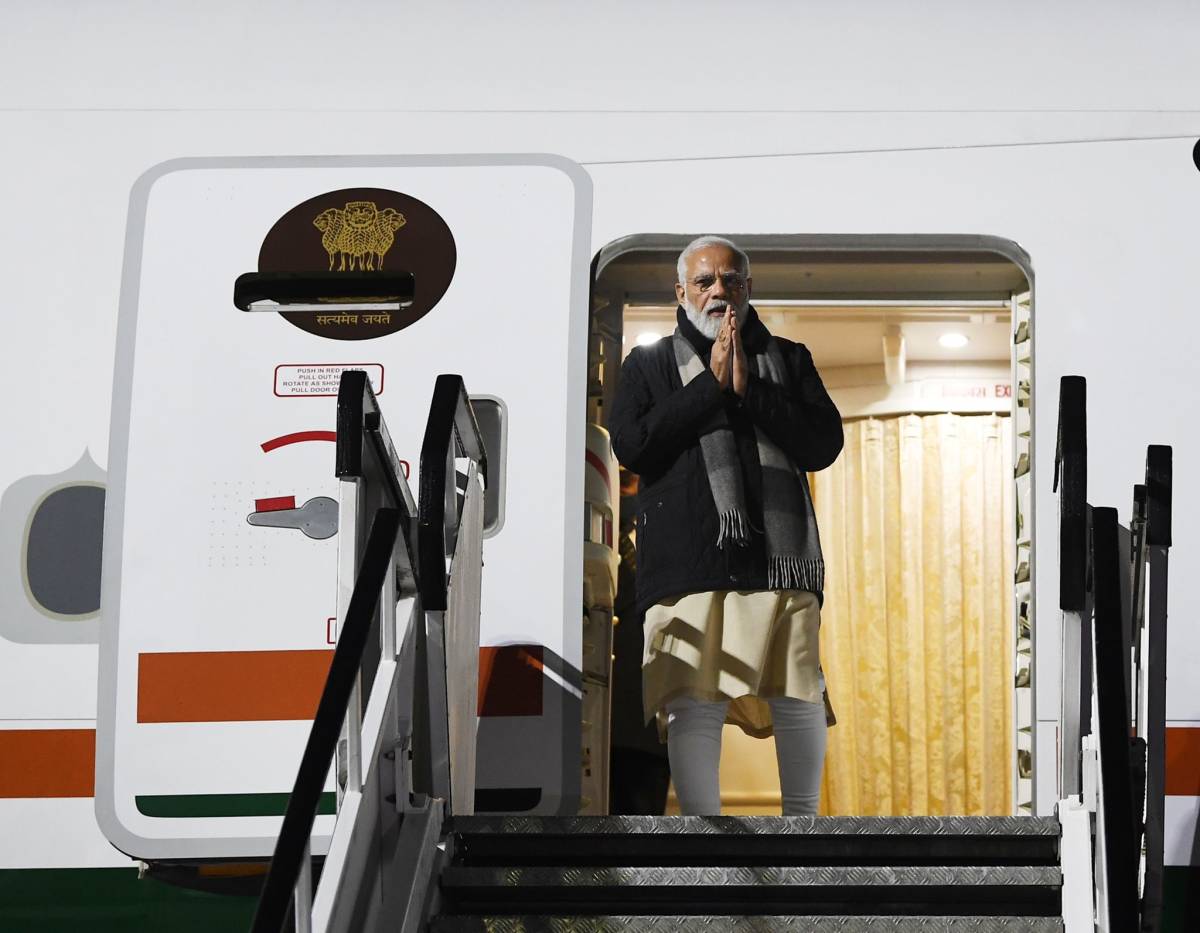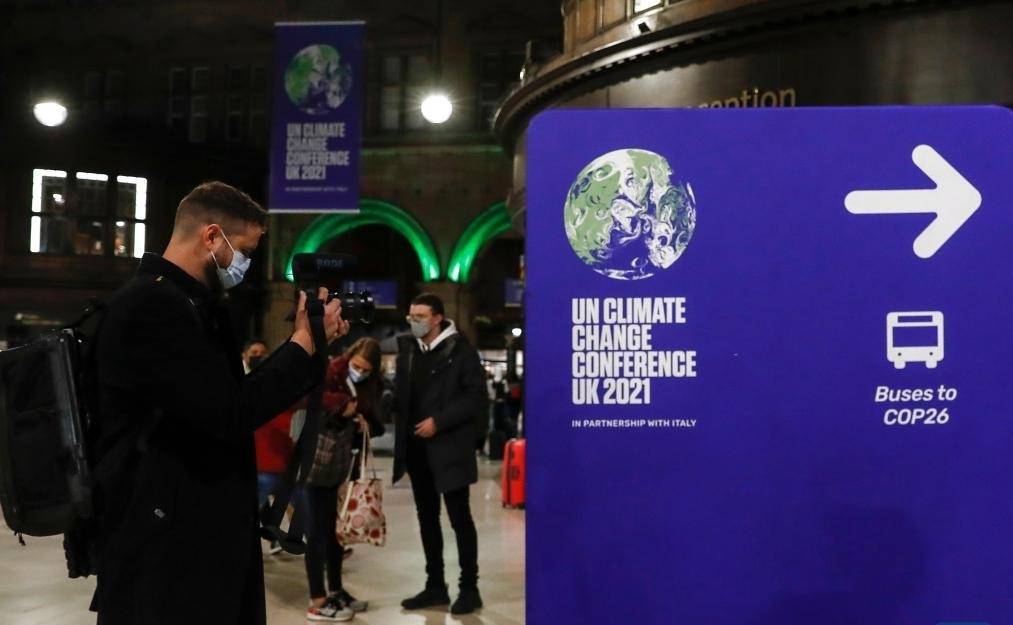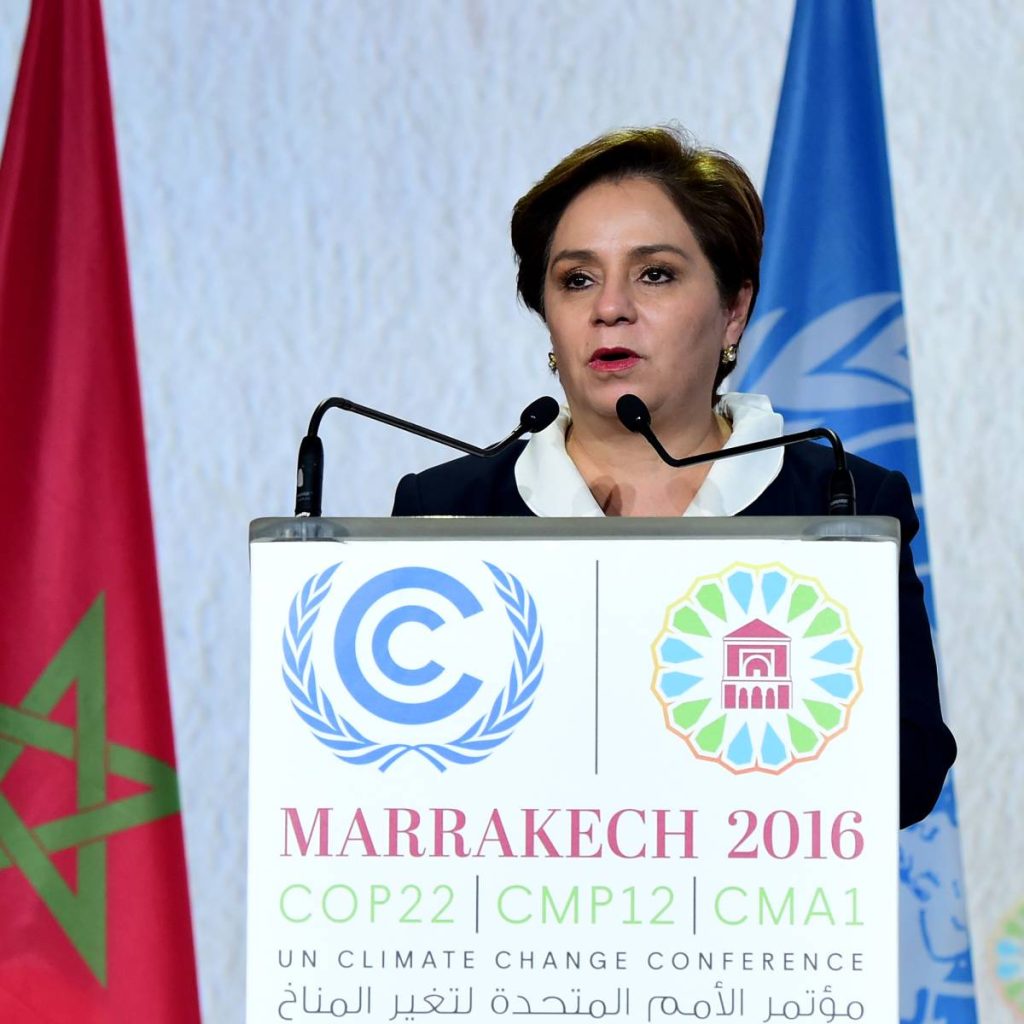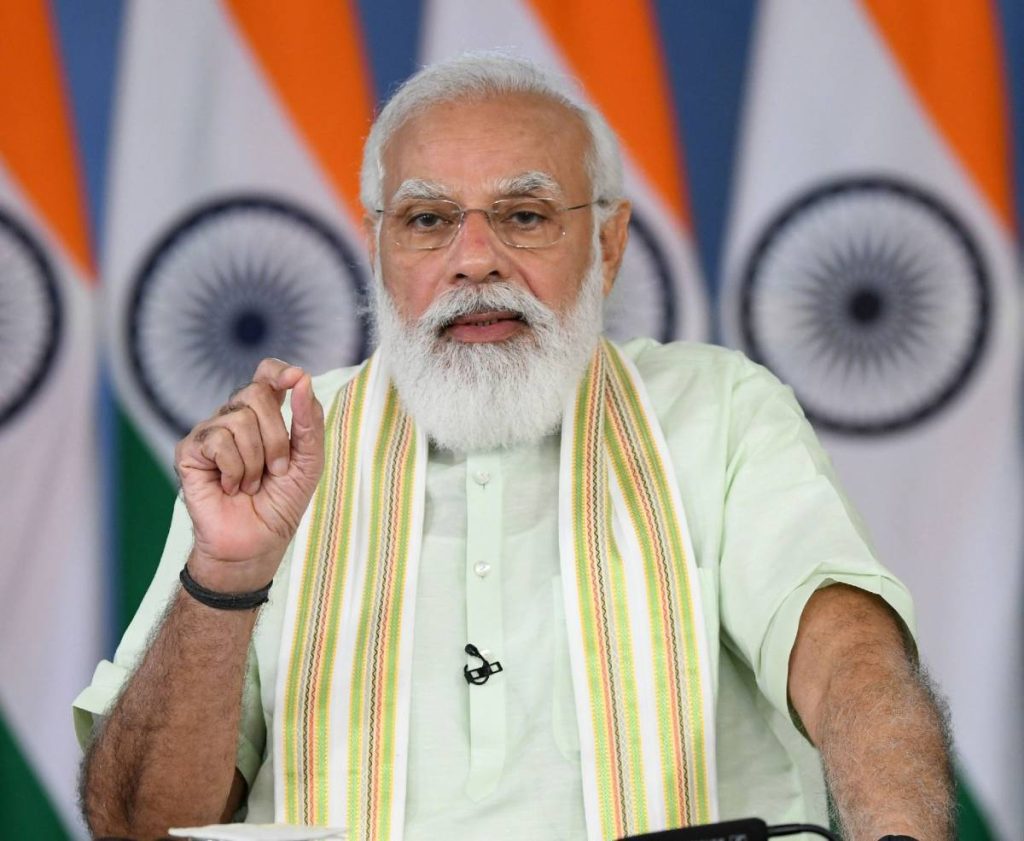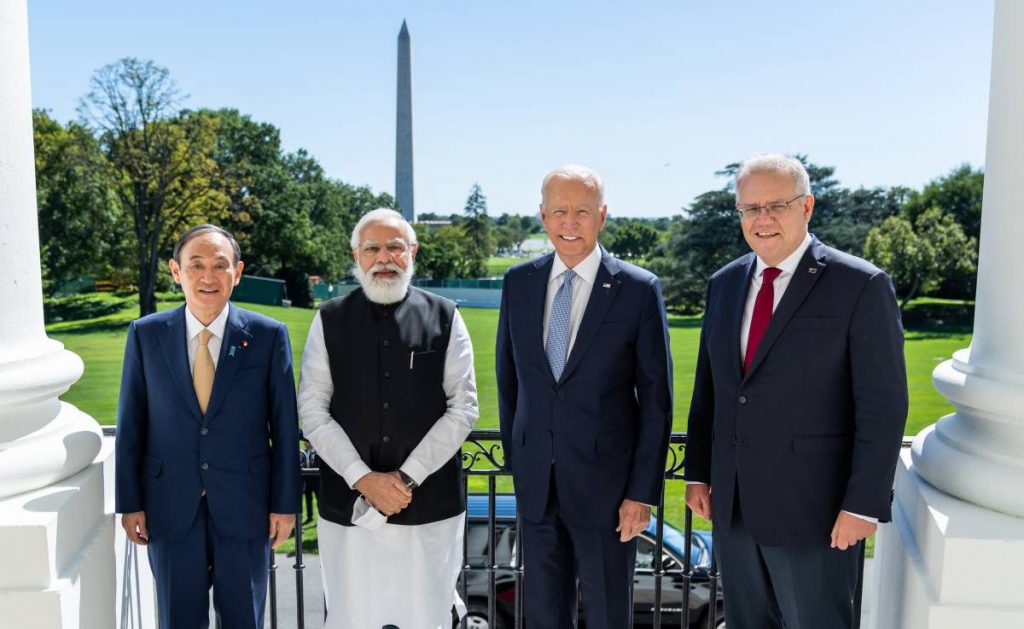Modi was received to the tune of Scottish bagpipes as he arrived at his hotel in Glasgow, where he was greeted by a large group of Indian diaspora representatives with chants of “Bharat Mata Ki Jai”, reports Asian Lite News
Prime Minister Narendra Modi arrived in Glasgow on Sunday for the COP26 climate summit and bilateral talks with British Prime Minister Boris Johnson on the sidelines of the United Nations (UN) meet.
“Landed in Glasgow. Will be joining the COP26 Summit, where I look forward to working with other world leaders on mitigating climate change and articulating India’s efforts in this regard,” PM Modi said on Twitter.
The Prime Minister was received to the tune of Scottish bagpipes as he arrived at his hotel in Glasgow, where he was greeted by a large group of Indian diaspora representatives with chants of “Bharat Mata Ki Jai”.
“Leaving for Glasgow after a fruitful G20 Summit in Rome. During the Summit, we were able to have elaborate deliberations on issues of global importance such as fighting the pandemic, improving health infrastructure, boosting economic cooperation and furthering innovation,” PM Modi said in an earlier tweet.
The Prime Minister, who flew into Glasgow from the G20 Summit in Italy, is scheduled to begin the UK leg of his European tour with a meeting with community leaders and Indologists based in Scotland on Monday morning.
He will then proceed for the opening ceremony of the World Leaders’ Summit (WLS) at the 26th Conference of Parties (COP26) to the United Nations Framework Convention on Climate Change (UNFCCC) at the Scottish Event Campus (SEC) in Glasgow, where he is set to address the summit plenary session.
PM Modi’s bilateral meeting with Boris Johnson is expected to take place soon after Monday’s opening ceremony, which will include cultural performances and a speech by the UK Prime Minister. Johnson has said the summit will be the “world’s moment of truth” and has urged world leaders to make the most of it.
“The question everyone is asking is whether we seize this moment or let it slip away,” he said, ahead of the two-week conference.
His talks with PM Modi are expected to focus on the UK-India climate partnership as well as a stock-take of the 2030 Roadmap for stronger UK-India Strategic Partnership – signed by the two leaders during a virtual summit in May this year.
“Both governments remain committed to the implementation of the Roadmap, within prescribed timelines. Accordingly, we are looking to launch negotiations in November 2021 for an Interim Agreement to be signed in March 2022 and eventually a comprehensive agreement, if all goes according to schedule, by November 2022,” India’s High Commissioner to the UK, Gaitri Issar Kumar, said ahead of the prime ministerial talks – the first in-person meeting between PM Modi and Johnson following the UK PM’s twice cancelled visit to India earlier this year due to the COVID-19 pandemic.
The PM Modi-Johnson meeting will be followed by a leader-level COP26 event entitled Action and Solidarity: The Critical Decade, with PM Modi set to deliver India’s national statement on the country’s climate action to the delegates soon after.
“India is among the top countries in the world in terms of installed renewable energy, wind and solar energy capacity. At the WLS, I will share India’s excellent track record on climate action and our achievements,” PM Modi said in a statement ahead of the summit.
“I will also highlight the need to comprehensively address climate change issues including equitable distribution of carbon space, support for mitigation and adaptation and resilience building measures, mobilisation of finance, technology transfer and importance of sustainable lifestyles for green and inclusive growth,” he said.
India’s focus at the COP26 Summit will be on the country’s “ambitious” Nationally Determined Contribution (NDC) goals for the post-2020 period under the Paris Agreement.
These include a reduction in emissions intensity of its GDP by 33 to 35 per cent by 2030 from 2005 level, as well as achieving 40 per cent cumulative electric power installed capacity from non-fossil fuel based energy resources by 2030.
Predictable and consistent financing of green technology for developing countries will be another key area of focus for India.
At the end of day one of the World Leaders’ Summit on Monday, PM Modi will join more than 120 Heads of Government and Heads of State at a special VVIP reception at Kelvingrove Art Gallery and Museum – one of Scotland’s most popular visitor attractions.
The reception will also involve members of the royal family, including Prince Charles and wife Camilla and Prince William and wife Kate Middleton.
Queen Elizabeth II was due to attend this special reception but pulled out last week after medical advice against travel.
On Tuesday, the final day of PM Modi’s UK visit, the PM is scheduled to hold a series of bilateral meetings with leaders of Switzerland, Finland, Israel, Nepal, Malawi, Ukraine, Japan and Argentina, as well as a meeting with Microsoft co-founder Bill Gates.
The launch of the Infrastructure for Resilient Island States initiative and a leader-level event entitled Accelerating Clean Technology Innovation and Deployment are also scheduled for Tuesday before the Prime Minister flies back to New Delhi in the evening.
The India-led International Solar Alliance (ISA) will launch a new Green Grids Initiative in partnership with the UK, with an ambition to connect different parts of the world with a common solar grid.
ALSO READ-Mars Mission launches competition for UAE students
READ MORE-Climate Finance: UK pledges additional 1 bn pounds

